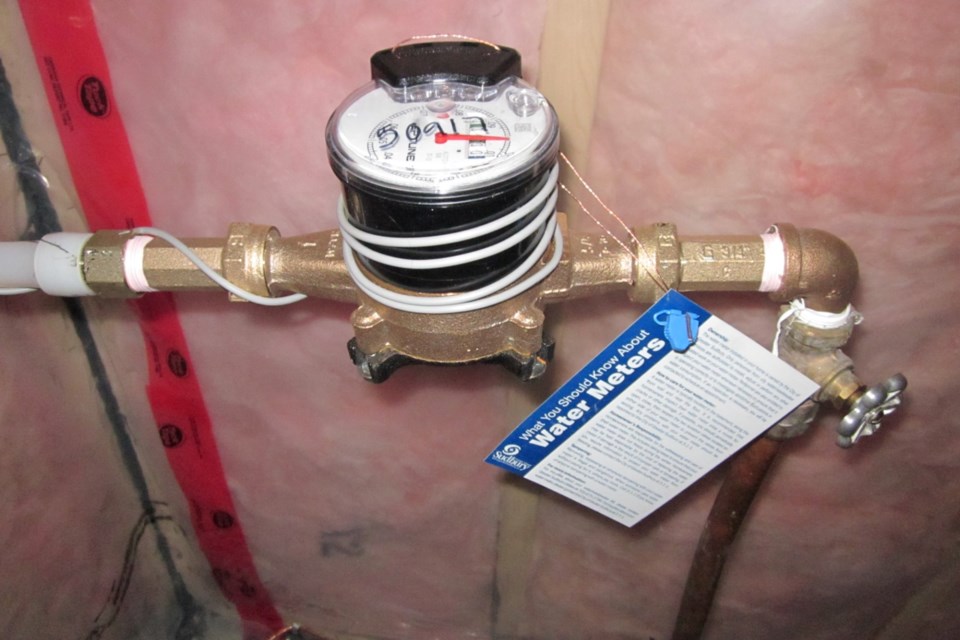The city’s shift toward smart water meters that can be read remotely is almost completed, with 98.5 per cent of them installed.
This leaves 700 properties without advanced meter infrastructure, which is expected to be installed between this year and next.
“The project is late getting delivered, but we did achieve it on budget and on target,” Michael Loken, the city’s acting director of Water/Wastewater Treatment and Compliance, told city council this week, noting the meters’ installation was hampered by pandemic-era restrictions.
Loken delivered a presentation highlighting the program’s progress and early findings during Tuesday’s finance and administration committee meeting of city council.
Originally budgeted at $17.2 million, an additional $500,000 was tacked on to handle pandemic-related issues, and they’ve achieved the goals set out in this new budget.
By the time the remaining 700 meters are installed next year, Loken said they’ll have finished expending the budget.
Replacing the city’s water meters with status-quo, manual-read devices, would have cost approximately $10.2 million, he said, noting that with the majority of them around the end of their 20-year lifespan this would have been necessary soon.
Smart water meters, which also carry a 20-year lifespan, come at an additional $7 million, he said.
“We were getting all the benefits of that advanced meter system for that $7-million cost,” Loken told city council.
Originally slated to have a 10.2-year payback, the meters are now estimated to have paid off their $7-million additional cost within 11 years,
This year, the city’s smart water meters are expected to carry a net benefit of $462,500, and by full operation are slated to save the city $684,000. This includes eliminating an annual meter-reading cost of $360,000, meter maintenance efficiencies of $40,000, efficiencies in customer service and billing of $182,000 and the reduction of non-revenue water of $428,000.
These savings work against an additional annual costs related to data analysis and other related costs totalling $326,000.
The devices replace traditional water meters and can be read remotely by both city staff and residents, who have access to hour-by-hour breakdowns of water use, which can help them find leaks.
Loken said alarms are also built in so that if a leak is suspect or water use exceeds a certain amount they are sent an email.
Of the approximately 700 people yet to receive a smart water meter, 50 are waiting on city action and 652 are non-complaint accounts.
“There are still some outstanding questions that people have related to technology and health concerns,” Loken said.
Smart meters have been the target of various conspiracy theories, but Health Canada has clarified that radiofrequency electromagnetic fields from smart meters carry no health risks.
Those who actively refuse new water meters have been charged $50 per month to cover the expense of having to drive out to manually read their outdated water meter. They will eventually have their service disconnected in the event they continue to decline the new devices.
Last year, the city disconnected 63 water meters by Nov. 8, at which point they ceased doing so to avoid frozen pipes. They recorded a 90 per cent compliance rate following disconnection, leaving six accounts that remain disconnected associated with vacant homes.
Disconnects are expected to continue this year.
A revised mail out including all necessary information to book an appointment will be sent to all non-compliant customers starting in April, door hanger notices will be distributed beginning in May, and 100 to 125 installations will be targeted per month.
The goal is to install 580 devices by the end of the year, with the remaining 122 accounts addressed in 2025.
Tyler Clarke covers city hall and political affairs for Sudbury.com.
